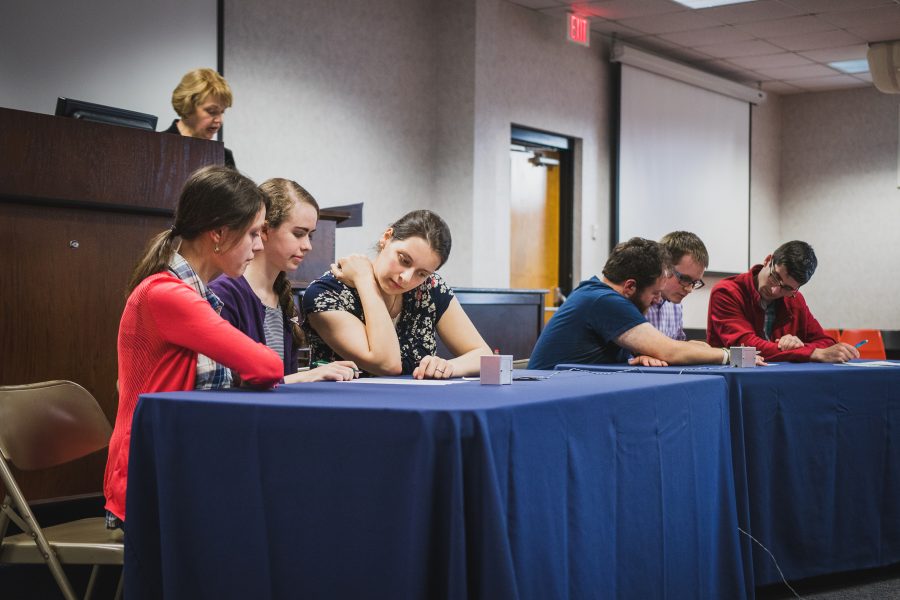While most intramural competitions at Bob Jones University focus on athletic prowess, the scholastic bowl allows students to test their brainpower against students in other societies.
BJU held its first scholastic bowl in 1984, and the bowl has been a staple of intramural competition at the University ever since.
Initially the scholastic bowl was created by Dr. Bob Jones III to be a fun activity for students while exams were still being graded manually by professors. At the time, the final round was held in Founder’s Memorial Amphitorium in front of the entire student body. Dr. John Matzko, faculty member in the Division of Social Science, has been involved with the scholastic bowl for the duration of its existence. He currently is responsible for selecting the questions for the bowl.
Although the purpose of scholastic bowl has changed greatly over the course of BJU history, it is still very relevant to many members of the student body and is still an integral part of society culture. Phil Arcuri, a senior humanities major, is a member of the Sigma Alpha Chi Spartans’ scholastic bowl team.
Arcuri said his personal experience and interest in random facts sparked his interest in the bowl.
He said the bowl is about more than just general knowledge, but that it also tests your memory and processing speed and strengthens your ability to think under pressure. According to Arcuri, scholastic bowl provides a unique way for students to get involved in their societies in a different way. “I think it’s definitely a way for students of all types to come together,” he said.
Arcuri also said that contrary to common stereotypes, the bowl is not just for “nerds,” but can be an enjoyable activity for a broad demographic of students. “You don’t have to be the smartest kid in your society to do it,” he said. “Just go out, have fun and get involved.”
The questions included in the bowl encompass a wide variety of academic topics, including mathematics, Bible, history, art and other common liberal arts subjects. The bowl’s participants are not required to do any studying or preparation for matches and are not informed about the nature of the questions ahead of the time.
This ensures the competition is purely a challenge of a student’s knowledge. This also keeps participation in the scholastic bowl from adding too much pressure to the already somewhat hectic nature of college life. The very nature of scholastic bowl challenges students in the area of team building.
Since students can’t really prepare for a scholastic bowl match, they can instead collaborate and strategize as a team in order to ensure a strong performance in the round. The first round of this year’s scholastic bowl will be held on Oct. 19 in the Alumni building during society.


























































